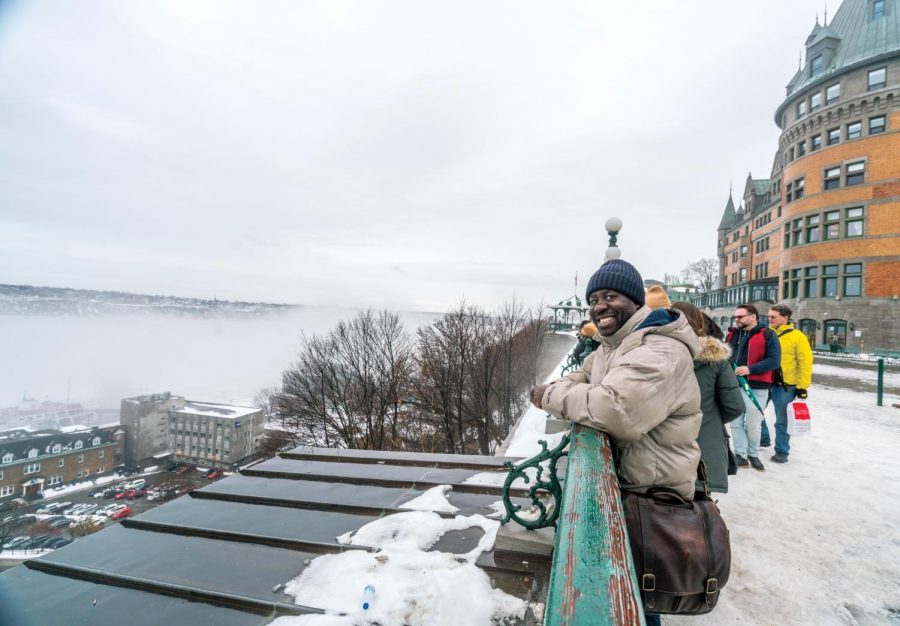Voyage au Québec
Mr. Fall looks out on the St. Lawrence River during last year’s Quebec trip
What is the best way to kick off a new semester? For 19 third-year French students, it was to live in Canada for three days and immerse themselves in the world of our French-speaking neighbor to the north.
After arriving in Quebec and meeting with tour leaders and host families last Saturday, students officially started activities the following morning. They explored old Quebec, toured the Musée de la civilization, listened to a presentation on military history by the National Battlefields Commission of Canada, and held cannon balls and medical tools. The students also had fun sliding at the Village Vacances Valcartier and riding horse-drawn buggies at the Chemin du Roy sugar shack.
The Classical and Modern Languages Department began running the Quebec program in conjunction with the third-year French curriculum 17 years ago. The trip gives students an opportunity to completely immerse themselves in the French language. From the moment the students boarded the buses for Canada, the delegation spoke entirely in French to tour guides, homestay families, and amongst themselves. Mrs. Wendy Levithan, instructor in French and the organizer of the trip, said “The purpose of this trip is to let the third-year students gain the confidence to realize, ‘Wow, I really can get through four straight days in French. Even if people sometimes don’t always understand me or vice versa, I am competent enough in the language to get through.’”
While the excursion brought many students to Canada for the first time, others recalled past trips up north. For Obi Okoli ’20, the trip brought back memories of his experience going to Quebec with his French class in eighth grade. On that trip, he was not yet confident in his conversational French. For this year’s trip, Okoli speculated on potential embarrassment when ordering food or asking for directions, but he pointed out, “I think that’s the point of this immersion – only through encountering [embarrassment] can we strengthen speaking skills and make French more applicable to real-life situations.”
In response to these concerns, Mrs. Levithan encouraged students, saying, “We know that they are going to have times in the trip when they’re going to be super-frustrated, but we’ve never had a student come out not having had fun in French or not proud of themselves for surpassing their own expectation about how much they can do in French. Most of them also had a wonderful connection with the homestay families.”
Students’ performance on the trip will be evaluated based on their eagerness to speak French. During the trip, participants are encouraged to help their peers use French as much as possible. They are expected to reserve their use of English for emergencies. Three journal reflections are also required following the trip’s conclusion. Okoli said, “It doesn’t intimidate me that we are getting graded. Rather, it encourages me to get the most out of the trip.”
Upon their return to campus, students turned back to their textbook materials and and classroom discussion. However, they were encouraged to continue incorporating their recent French practice into conversations with peers outside of class, mimicking the on-site learning achieved in Quebec.






